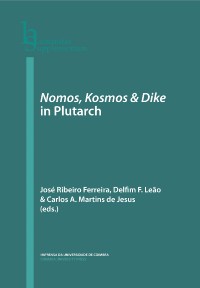Please use this identifier to cite or link to this item:
https://hdl.handle.net/10316.2/32879| Title: | La nozione di Giustizia nel suo sviluppo storico: la Giustizia come valore primario del pensiero etico e politico di Plutarco | Authors: | Becchi, Francesco | Issue Date: | 2014 | Publisher: | Imprensa da Universidade de Coimbra | Journal: | http://hdl.handle.net/10316.2/32868 | Abstract: | Justice is an ideal that characterizes Greek thought throughout its historical development since Homer. It reaches its clearest formulation with Plato, who regarded it as the “virtue of the soul”, conceived as summary of its three functions, and with Aristotle, who turned it into the political virtue par excellence, emphasizing its intersubjective character. Plutarch, who interprets the Platonic and Aristotelian doctrine of justice in light of modern Stoicism and posterior Aristotelianism, transforms justice into an ethical and political ideal at the same time: a virtue that springs from the soul, where it has its roots, to seek outside. In this respect, it represents for him one of the most perfect virtues and one of the highest forms of humanity, because it allows the politician - provided with an appropriate education and moral formation - to carry out his activity for the benefit of the members of his community, showing courage in doing and saying what is right and fair. | URI: | https://hdl.handle.net/10316.2/32879 | ISBN: | 978-989-721-012-9 | DOI: | 10.14195/978-989-721-012-9_10 | Rights: | open access |
| Appears in Collections: | Titulo:Nomos, Kosmos & Dike in Plutarch |
Files in This Item:
| File | Description | Size | Format | |
|---|---|---|---|---|
| nomos__kosmos_artigo10.pdf | 562.99 kB | Adobe PDF |  |
Items in DSpace are protected by copyright, with all rights reserved, unless otherwise indicated.
